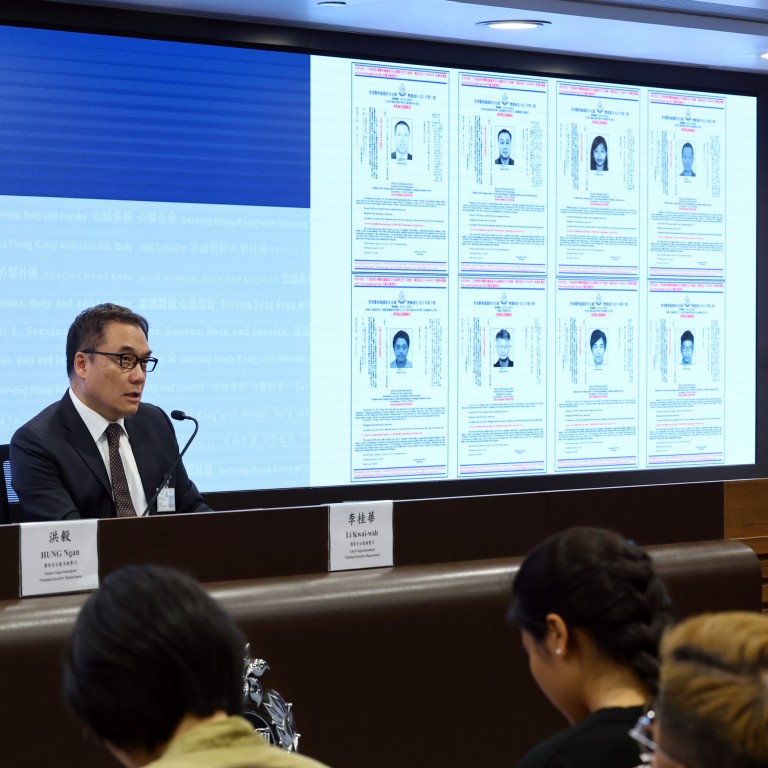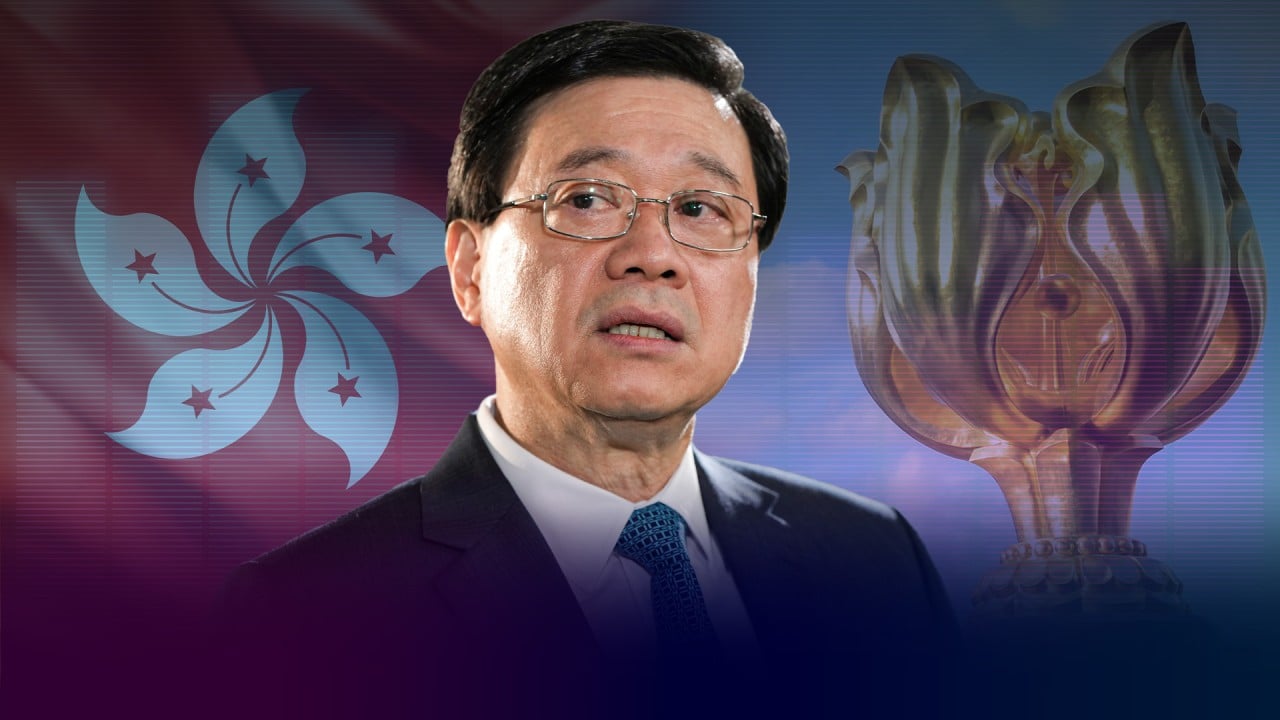
Hong Kong national security law: John Lee says HK$1 million police bounties for 8 wanted activists will send world ‘strong message’ suspects to be hunted for a lifetime
- Chief executive calls for those, including relatives of suspects, with information on activists to come forward, vowing they will be rewarded
- China’s foreign affairs office in city warns external forces to stop harbouring criminals and supporting ‘pawns’
The announcement of arrest warrants for the eight activists sparked a fresh row between Beijing and the governments of countries where they live, with China’s foreign affairs office in Hong Kong on Tuesday warning “foreign forces” to stop harbouring criminals and supporting “pawns”.

“Police should do it because that’s the message not just to Hong Kong, but to those who try to endanger our national security. And we want them to know that we will not sit and do nothing,” Lee warned before the weekly meeting with his advisers in key decision-making body the Executive Council.
“We’ll be pursuing the [suspects’] criminal responsibilities for life until they surrender themselves.”
The police force on Monday announced it was offering HK$1 million in reward money for information leading to each arrest of eight opposition figures – former legislators Nathan Law Kwun-chung, Dennis Kwok Wing-hang and Ted Hui Chi-fung, unionist Mung Siu-tat, lawyer Kevin Yam Kin-fung, and activists Finn Lau Cho-dik, Anna Kwok Fung-yee and Elmer Yuan Gong-yi.
But critics questioned the effectiveness of the bounty given the countries these activists live in – Australia, Britain and the United States – suspended extradition treaties with Hong Kong following Beijing’s imposition of the national security law on the city in 2020, with political crimes also usually exempted under such deals.
Who are the 8 Hongkongers wanted over national security with HK$1 million bounties?
The move also immediately sparked condemnation from the three countries.
Australian foreign minister Penny Wong, who met Hui and Yam in January, said her government would support those in the country who exercised their rights.
“Any allegations of foreign interference will be investigated by the appropriate authorities,” she said on Tuesday, referring to national security legislation in Australia that bans activities that influence the exercise of democratic or political rights on behalf of a foreign government.
On Monday, the US State Department urged the Hong Kong government to immediately withdraw the bounty, saying the extraterritorial application of the national security law was a “dangerous precedent” that threatened the human rights and fundamental freedoms of people all over the world.
In Britain, Foreign Secretary James Cleverly said: “We will not tolerate any attempts by China to intimidate and silence individuals in the UK and overseas.”
‘Hong Kong teachers, students must defend national security under patriotic bill’
US-sanctioned Hong Kong leader Lee on Tuesday said the reaction of foreign governments would not affect his administration’s determination to go after the suspects.
He sidestepped a question on whether the high-profile bounty was prompted by a recent campaign by overseas groups to bar him from attending an Apec summit in San Francisco in November.
“[What] overseas politicians or officials say will not in any way change our strong belief in the need to uphold protection of national security. I know they have been doing things for their own political reasons, for their own political gains,” Lee said.
“I’m not afraid of any political pressure that is put on us because we do what we believe is right.”
‘Hong Kong out of political quagmire and should not go down wrong path again’
In an apparent rebuttal of the US and British statements, Lee also maintained that extraterritorial powers existed in the national security laws of other countries, with Hong Kong’s legislation also granting the authority of “taking extraterritorial actions against criminals”.
China’s foreign affairs office in Hong Kong on Tuesday also issued a statement, saying it firmly rejected the “fallacies” of the US and British authorities.
“Some foreign politicians have criticised Hong Kong’s legitimate law enforcement which maintains national security while turning a deaf ear to their own impenetrable national security legislation and abuse of national security concepts,” a spokesman for the office said.
Hong Kong’s most wanted: a look at police bounties for notorious crimes
In a separate statement, Hong Kong’s Security Bureau said countries trying to excuse the suspects were despicable and disrespectful to the rule of law, reiterating that the government would seize any opportunity to bring the wanted individuals to justice.



